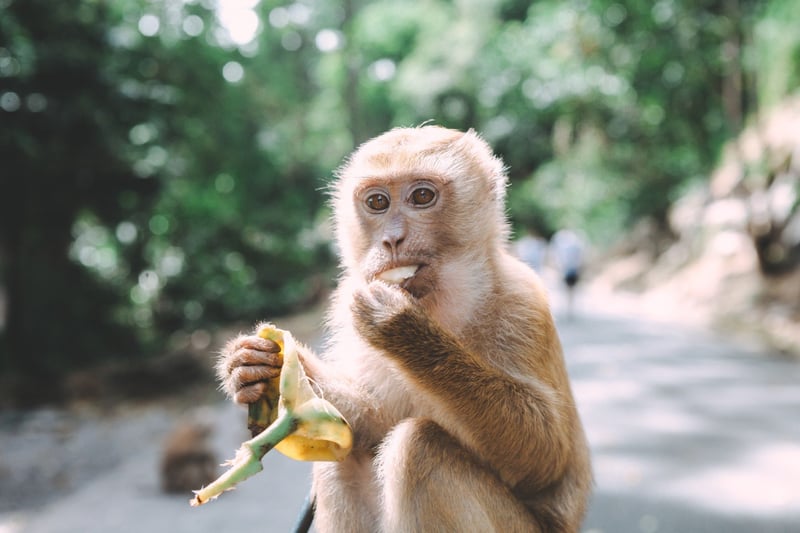
On International Monkey Day, let’s celebrate the many monkeys who share the Earth with us!
While the word “monkey” may conjure images of small brown animals like Curious George, there are more than 200 species of monkeys in the world. These monkeys range in size and geography, with the smallest monkey, the pygmy marmoset, weighing just three to five ounces, and the largest monkey, the mandrill, weighing roughly 77 pounds.
The number of monkey species continues to grow because new species are still being discovered. For example, in 2020, scientists discovered that banded langurs, found in Myanmar, Thailand, Malaysia, Singapore, and Indonesia, are actually three distinct species. It can be difficult to visually distinguish between closely related species, but new noninvasive techniques–like DNA analysis of excrement–allow researchers to uncover the diversity of monkeys fully.
Monkeys in Peril
Unfortunately, rampant habitat destruction and the pet trade are pushing numerous species to extinction. The recently discovered Raffles’ banded langur and East Sumatran banded langur are critically endangered due to deforestation, fires, and poaching. The third banded langur species–the Robinson’s banded langur–is classified as “near threatened."
In the US and abroad, nonhuman primates are also threatened by the pet trade. Due to their relatively small size and popularity on social media, monkeys are particularly vulnerable to being bred and purchased for use as pets. Monkeys are not domesticated and cannot thrive in human homes. Every single species has its own complex social structure. All monkeys need to live in their species-typical family groups to develop normally. When we attempt to keep them as pets, they suffer severe psychological harm.
Unfortunately, celebrities like Justin Bieber and social media influencers continue to purchase and promote monkeys as pets, sometimes even dressing them in human clothing or “training” them to mimic human activities like driving a toy car. People, unaware of the harms of the pet primate trade, “like,” comment on, and share these videos and photos and fuel their popularity.
Protect Monkeys from Exploitation
You can help protect monkeys from exploitation. The Captive Primate Safety Act would ban the private possession of monkeys and other nonhuman primates. This International Monkey Day, take a few minutes to urge your federal legislators to co-sponsor this bill and end the US’s cruel “pet” primate trade. To learn more about the Captive Primate Safety Act, watch our recent webinar about the bill featuring Erika Fleury, Program Director at the North American Primate Sanctuary Alliance, and Amy Kerwin, Executive Director of Primates Incorporated.
If you see a post or video of a monkey being kept in a human home or forced to mimic human behavior, keep scrolling! Engaging with these posts drives their popularity. Help keep monkeys safe and in the wild where they belong.